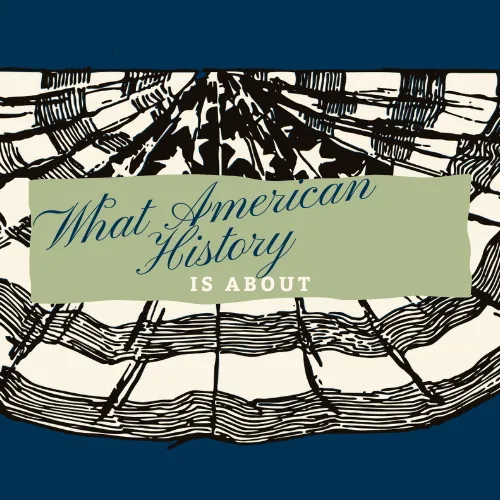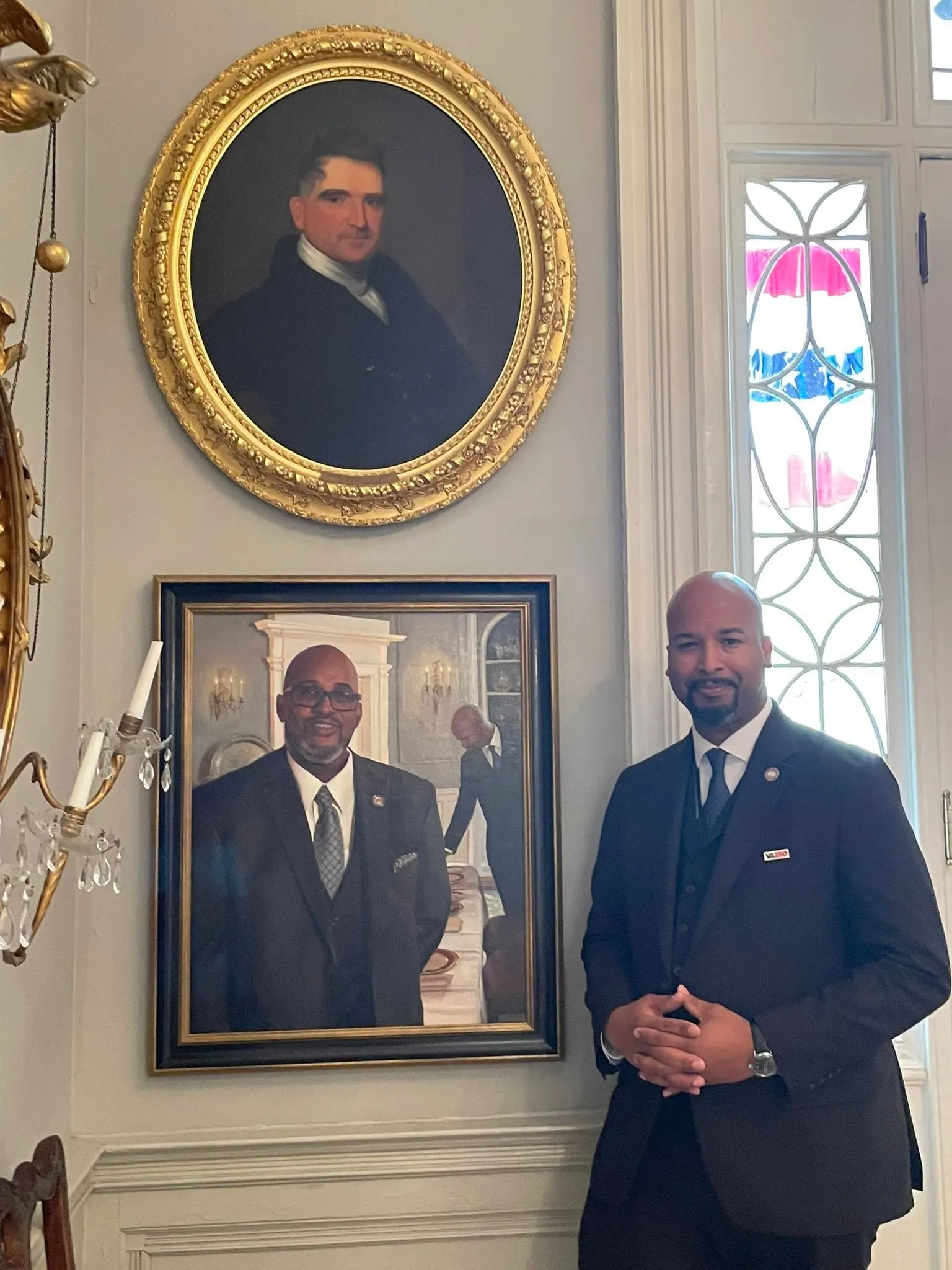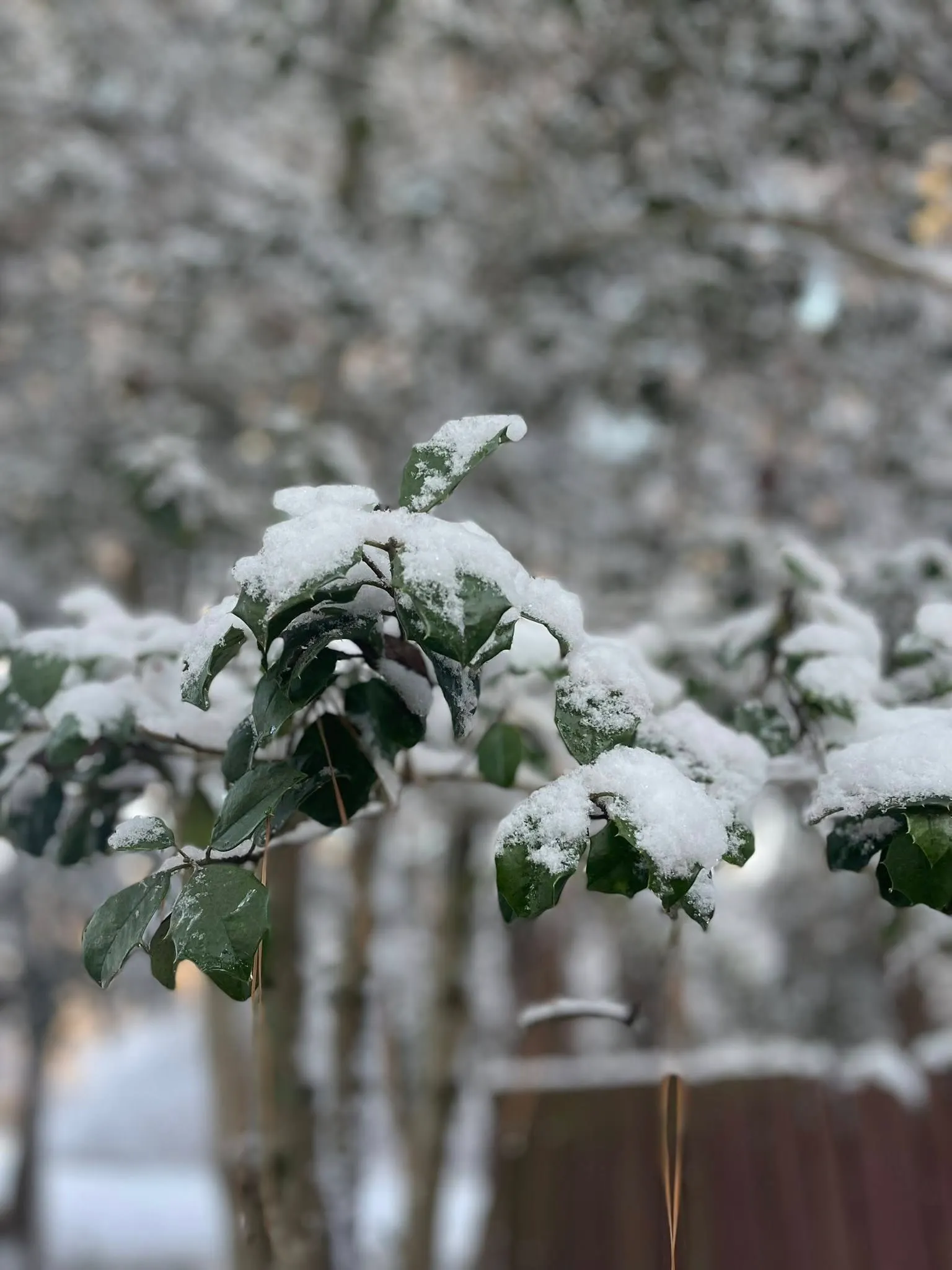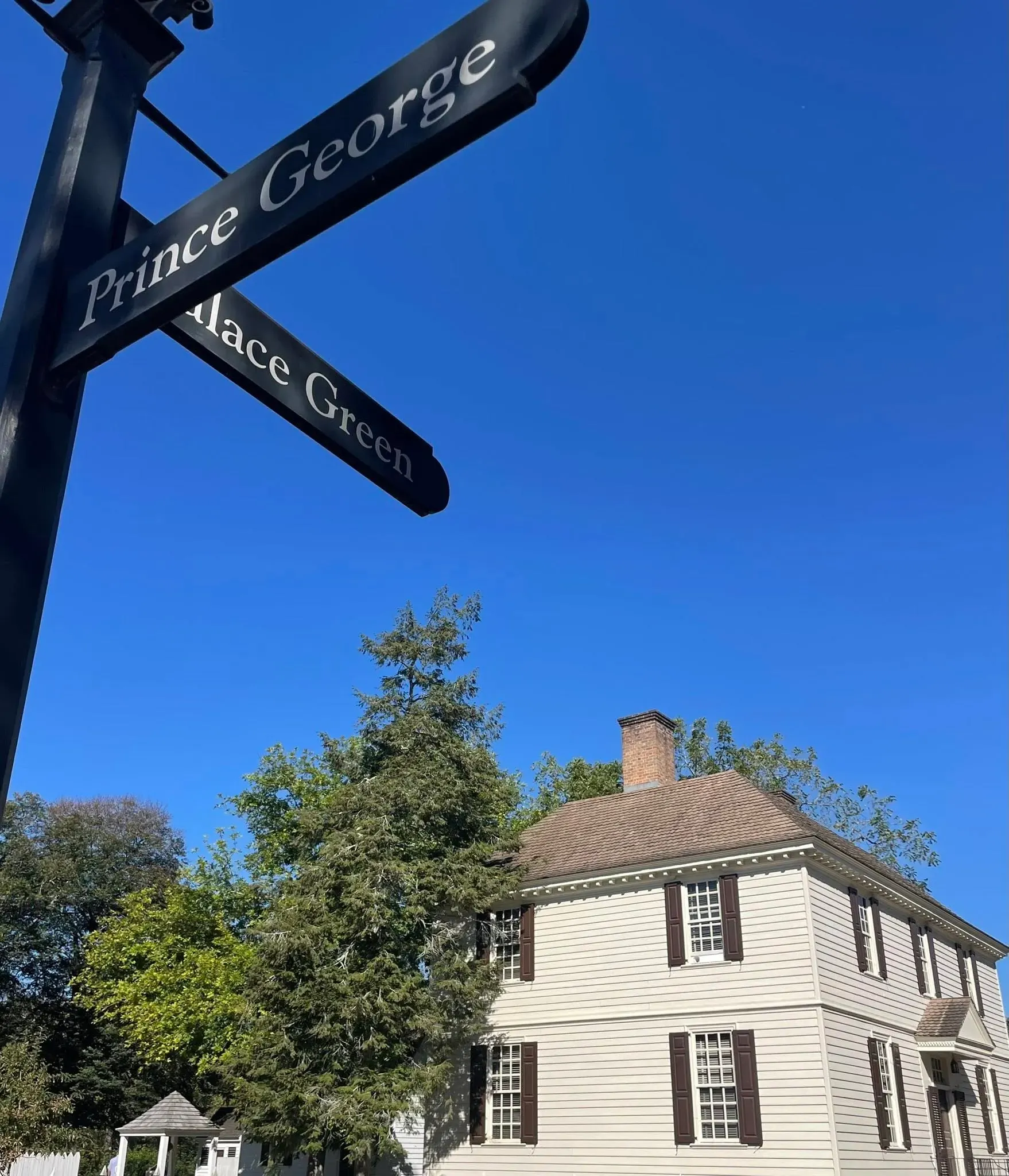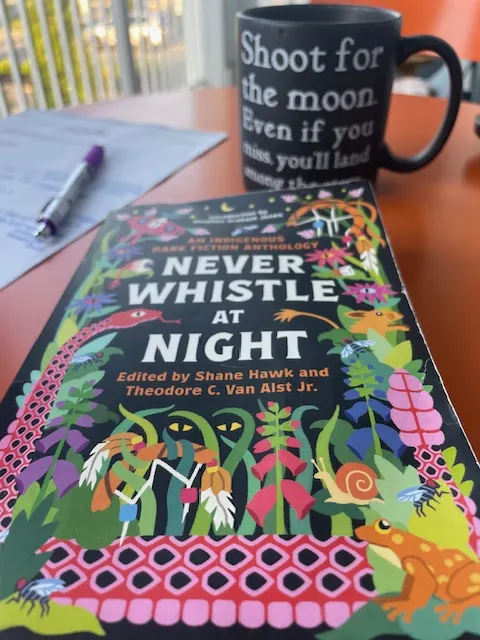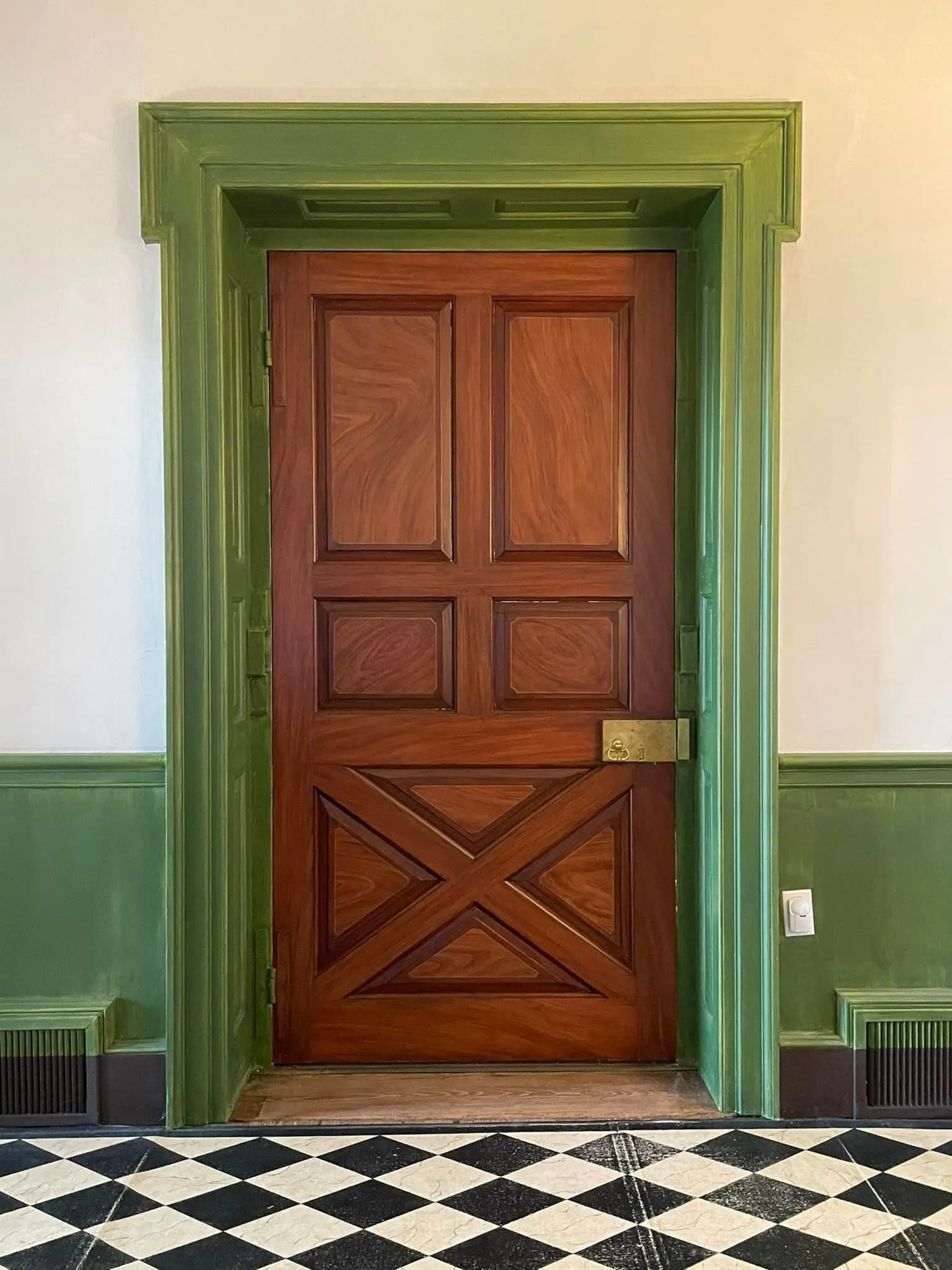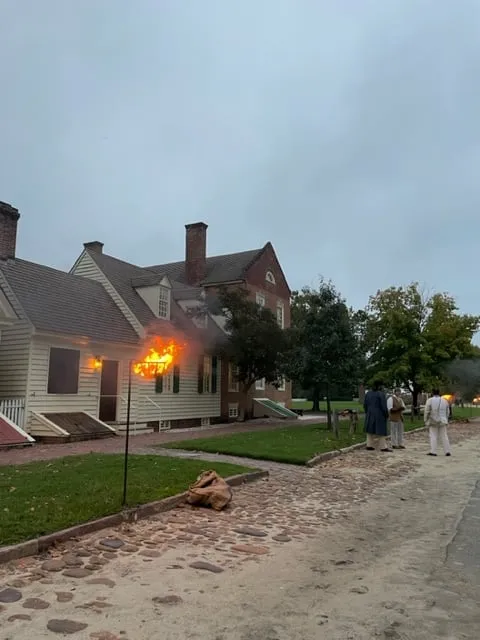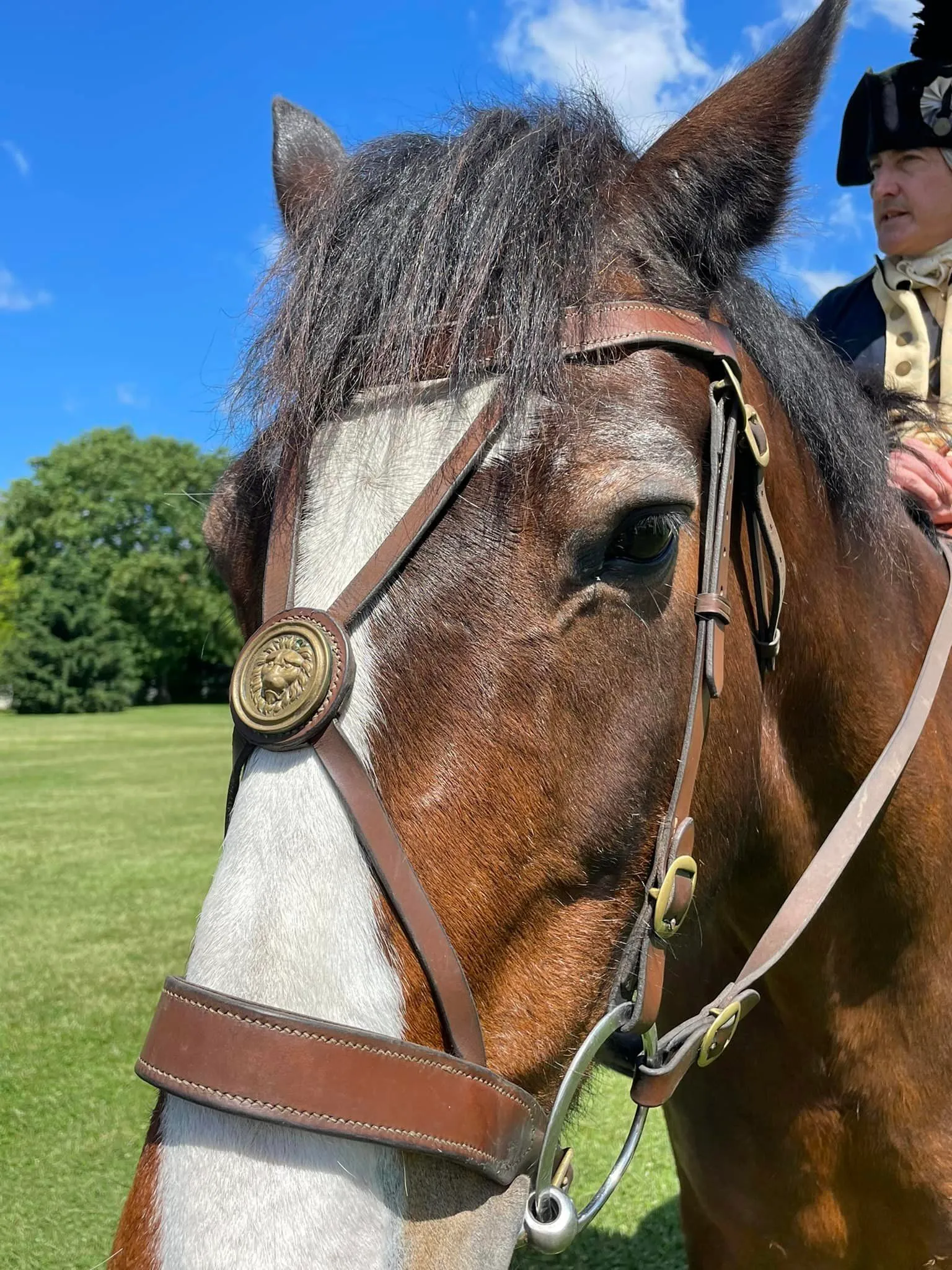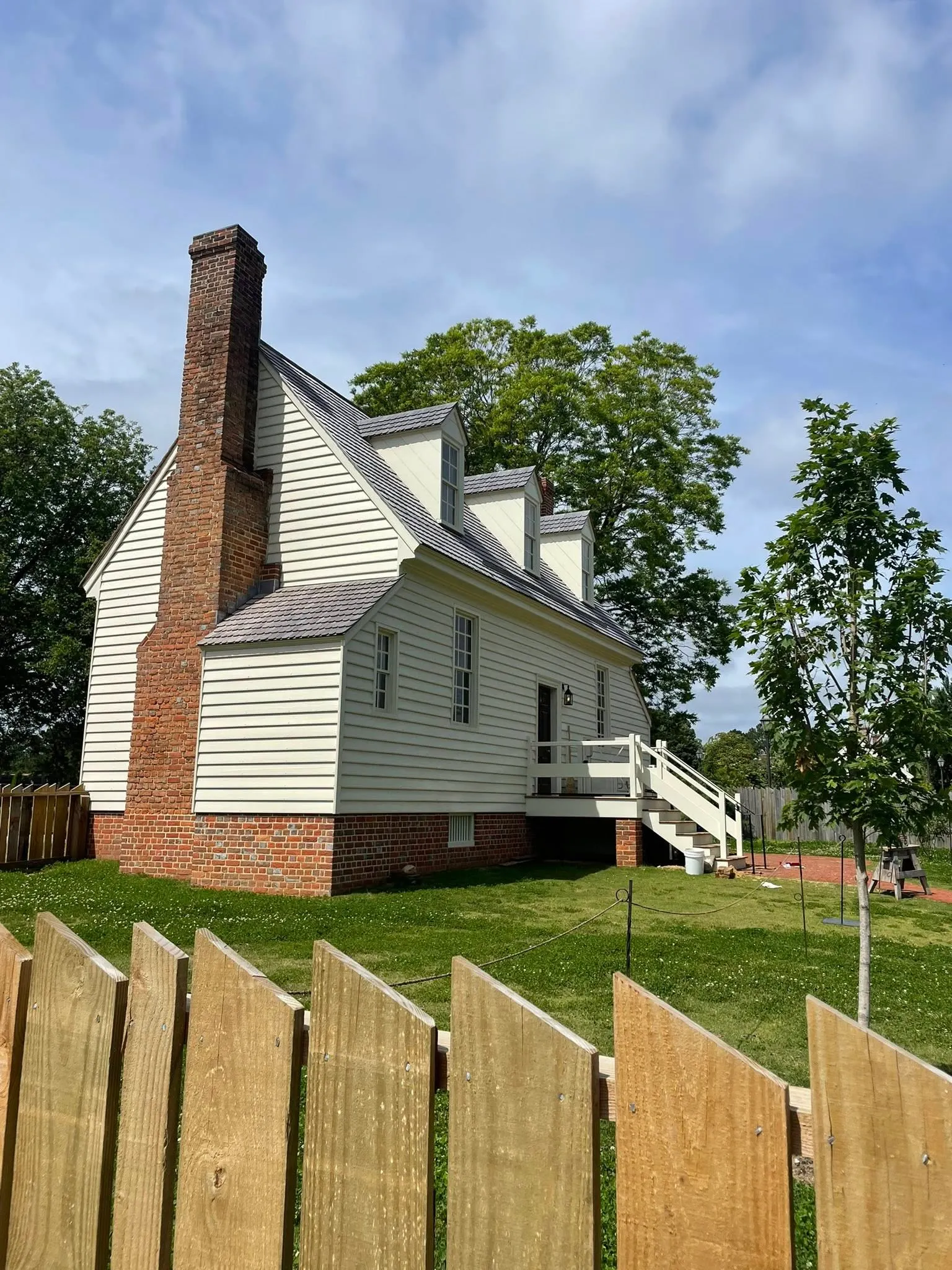Celebrating 250 Years of America: Insights from Elyse Werling at Preservation Virginia
Meet Elyse Werling of Preservation Virginia.
When I decided last year I was going to turn this What American History Is About blog from a hobby to my main business focus I knew I needed to meet experts in the field. One of the first people I reached out to was Elyse Werling, the Director of Interpretation and Collections at Preservation Virginia.
As we've been corresponding over the last few months, I wanted to share her with you all! There's no better time than as our nation revs up to celebrate it's 250th.
Events are already taking place in Virginia under the VA 250 moniker, as well as around the nation. Why? As the creation of the United States didn't happen overnight-- there is much to commemorate before and well-after July 4, 2026.
The bio:
Elyse holds an MA in History and Museum Studies from Tufts University and a BA in History and Anthropology from Indiana University (yes, she's a Big 10 gal like me- who went to Michigan State!).
But she's really dived into historical studies beyond the borders. Elyse is an alumna of the Victorian Society of America’s London Summer School and the Attingham Summer School. Her research has been published in Antiques and the Arts Weekly, Historic New England Magazine, and White House History Quarterly.
Prior to moving to Richmond, Virginia, she worked at:
- the White House Historical Association
- George Washington’s Mount Vernon and
- Historic New England, where she opened the Eustis Estate Museum & Study Center. (Wow!)
So let's dive into the interview. Fans of American history, this is one you'll love!
Necessary disclaimer: As a blogger, I use affiliate links sometimes! I may receive commission from purchases I share; it does not change your price but sometimes you might get a discount.
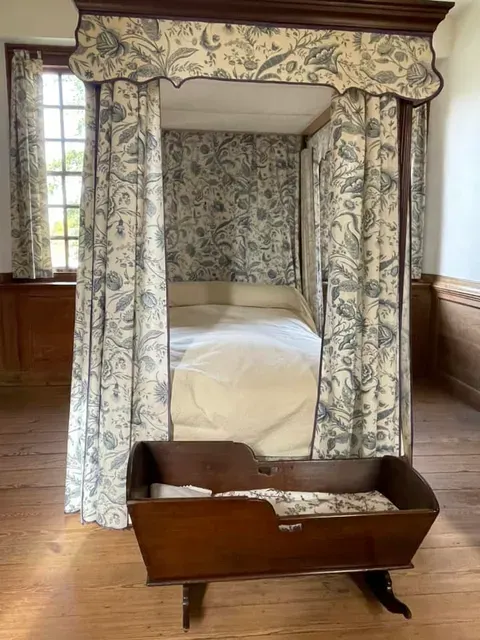
Bed and cradle on exhibit, pine room at Smith's Fort
Question 1: Tell us about choosing your career path and, specifically, how you landed at Preservation Virginia.
I was a history nerd from a very young age, mainly through books and family vacations to historic sites. I pursued a career in museums from day one in college, which I was lucky to realize early on. I have a Bachelor of Arts in History and Anthropology from Indiana University, and a Master of Arts in History and Museum Studies from Tufts University.
I had several internships and part time museum jobs in college and also had a fellowship at Strawbery Banke Museum in Portsmouth, NH while in graduate school. Since then, I've worked at Historic New England, George Washington's Mount Vernon, and the White House Historical Association.
I joined the team at Preservation Virginia in summer 2022 as Curator of Collections when my husband and I moved down to Richmond from D.C. I now serve as our Director of Interpretation and Collections, and absolutely love my job! I am so grateful to work for this wonderful organization.
RELATED: Click here to open Preservation Virginia's website in a new tab.
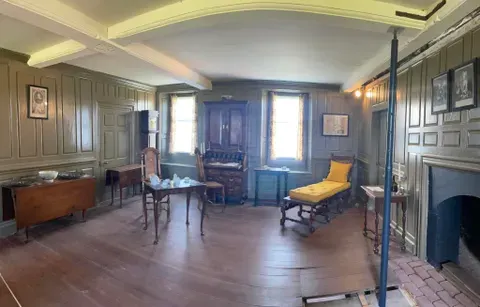
Part of Preservation Virginia collection, Bacon's Castle
Question 2: What properties are owned by Preservation Virginia?
Preservation Virginia owns and operates six historic sites - Bacon's Castle and Smith's Fort, both in Surry County; the John Marshall House in Richmond; Cape Henry Lighthouse in Virginia Beach; and Patrick Henry's Scotchtown in Hanover County.
Historic Jamestown is our sixth site, but it has a team of archaeologists that work there, although I work closely with them on various projects.
RELATED ARTICLES ON THIS BLOG- all will open in a new tab:
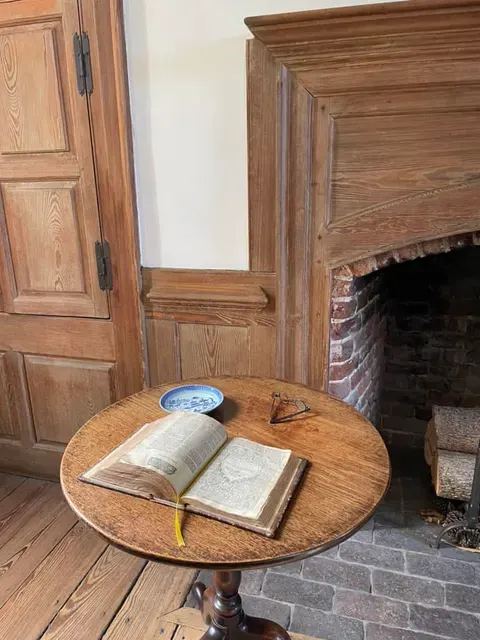
Bible in the pine room at Smith's Fort
Question 3: What would surprise readers to know about behind-the-scenes efforts at Preservation Virginia?
Most people don't realize how many sites we own - and that a membership gets you into all of them for free or reduced admission! It also surprises people when they learn we are the nation's oldest statewide preservation organization with a founding date of 1889.
RELATED: Click here to open a new tab and learn about membership options!
Question 4: What one object have you curated for the collection that you're most excited about?
My favorite new acquisition is located at Patrick Henry's Scotchtown and is currently featured in our new exhibit, "Give Me Liberty: Patrick Henry in the Fight for Freedom." This item is an 18th century copy of a letter written by Patrick Henry. In 1773, Quaker abolitionist Robert Pleasants wrote to Henry imploring him to consider the immorality of slavery.
Henry responded with candid words that give unparalleled insight into his contradictory thoughts on slavery. He admits that the colonial economy and his personal livelihood depend on the unpaid labor of others, yet wonders how a country so “fond of Liberty” could also defend slavery.
Although Patrick Henry’s original letter is lost, this document is one of three eighteenth-century copies known to exist today. Henry’s letter was so compelling and important that it was transcribed and circulated among various individuals and Quaker congregations.
This particular letter is connected to the Quaker Meetinghouse property in Burlington, New Jersey, which extends to Wood Street; you can see “WOOD STREET” written across the top of the letter.
Preservation Virginia acquired the letter at an auction not far from Burlington in 2023. Please come visit us at Scotchtown to see it in person and learn more!
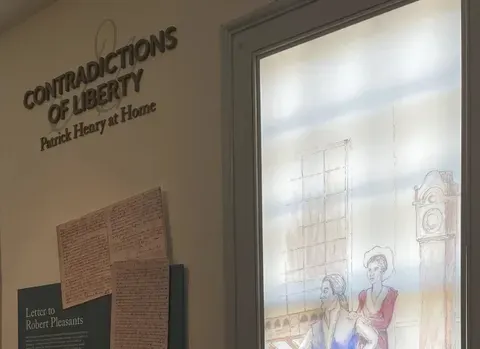
Robert Pleasants letter, Scotchtown
Question 5: Please share the importance of focusing on VA 250 events.
The commemoration of the 250th anniversary of the American Revolution is hugely important across Virginia, and particularly to Preservation Virginia as we own the pre-revolutionary home of Patrick Henry!
Henry lived at Scotchtown throughout all of the events that drew Virginia towards revolution, and we believe many of his ideas and plans were formed here. Visit us to take a tour and learn more! We have had several fantastic VA250 events already this year, but have several more coming up.
You can check out our upcoming statewide events here.
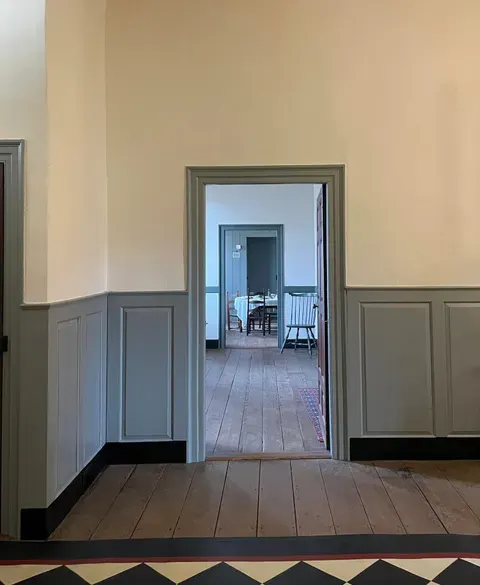
Interior view from entry hall, Scotchtown
Question 6: What are ways, including a membership, in which readers can engage with Preservation Virginia?
A membership is the best way to explore our sites! Not only does it get you into our five statewide sites for free, it gets you discounted admission to Historic Jamestown, and allows you to purchase discounted tickets to all of our special events.
We have public events every week, and also host workshops and webinars too.
Additionally, we have an African American Fellows Program and advocate for preservation legislation in both state and local governments.
Question 7: If there’s one piece of knowledge or advice you’d like readers to walk away with about preserving and understanding history, what would it be?
It is important to remember to preserve and teach the FULL history of a place, not just one moment in or view of time. Additionally, history is evolving, and we can always learn more.
History is not stagnant, and new information is always lingering beneath the surface.
You can find it if you search for it!
Lastly, history is community driven, and it is important to involve a historic site's surrounding community in order to share the fullest story possible with the public. When we listen to and work with each other, we can share more!
Special thanks to Elyse Werling of Preservation Virginia!
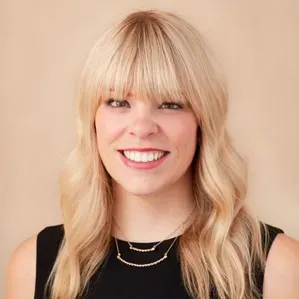
Closing words from history.
Source: Red Hill's website. This was Patrick Henry's final residence, and where he passed. Click here for the full transcription but I'm sharing the bit of Virginia's Declaration of Rights (which hangs in our home!), that's attributed to Henry. You'll recognize the full list as foundational to what become our United States Bill of Rights years later.
Introduced by George Mason at the Virginia Convention meeting in the Capitol at Williamsburg, and unanimously adopted on June 12, 1776. Governor Edmund Randolph, in his History of Virginia, attributed the authorship of Articles 15 and 16 to Patrick Henry.
June 12, 1776
A DECLARATION OF RIGHTS made by the representatives of the good people of Virginia, assembled in full and free Convention, which rights do pertain to them, and their posterity, as the basis and foundation of government.
....
15-That no free government, or the blessings of liberty, can be preserved to any people but by a firm adherence to justice, moderation, temperance, frugality, and virtue, and by frequent recurrence to fundamental principles.
16-That religion, or the duty which we owe to our CREATOR and the manner of discharging it, can be directed only by reason and conviction, not by force or violence; and therefore all men are equally entitled to the free exercise of religion, according to the dictates of conscience; and that it is the mutual duty of all to practice Christian forbearance, love, and charity towards each other.
Do you want to support my ability to interview more experts? (and share it all for FREE?) Use my online tip jar and buy me a coffee:

There is a huge practical disclaimer to the content on this blog, which is my way of sharing my excitement and basically journaling online.
1) I am not a historian nor an expert. I will let you know I’m relaying the information as I understand and interpret it. The employees of Colonial Williamsburg base their presentations, work, and responses on historical documents and mainly primary sources. In the case of interviews, I am sharing the words of the interviewee: their values, beliefs, and interpretation of research, highlighting any notes of my own as mine.
2) I will update for accuracy as history is constant learning. If you have a question about accuracy, please ask me! I will get the answer from the best source I can find.
3) Photo credit to me, Daphne Reznik, for all photos in this post, unless otherwise credited! All photos are personal photos taken in public access locations or with specific permission.
